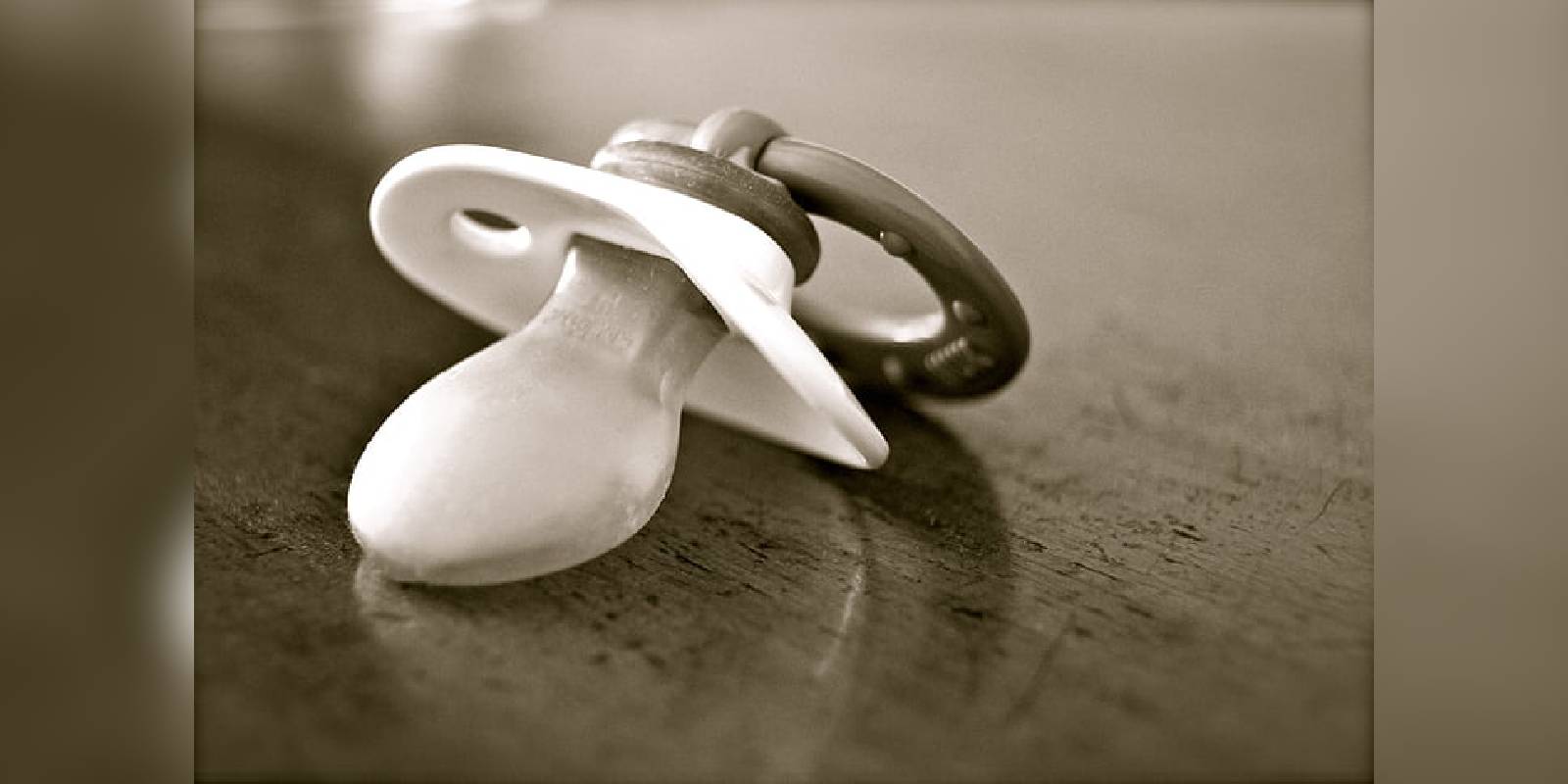Adult pacifiers, a trend that began in China, are now finding users in India as stress busters. While some adults claim that they ease anxiety and improve sleep, dentists warn of serious dental risks
Published Aug 24, 2025 | 7:00 AM ⚊ Updated Aug 24, 2025 | 7:00 AM

Adult Pacifier. (Pickpik/ Creative commons)
Synopsis: A quirky trend of adults using pacifiers for stress relief is gaining popularity on social media, with claims of easing anxiety, insomnia, and aiding focus. Experts warn, however, of dental risks like jaw strain, misaligned teeth, and gum issues. Psychologists suggest the comfort is temporary and may mask deeper problems, urging healthier coping strategies instead.
From TikTok videos in China to Instagram reels in India, a curious stress-busting trend has found takers — adult pacifiers.
Marketed as silicone or rubber soothers for grown-ups, these pacifiers are being used by young Indians as a way to calm nerves, reduce anxiety, or even fall asleep faster.
Users claim the act of sucking evokes a childhood sense of safety. Some say it helps them deal with panic attacks, while others insist it keeps them from smoking or binge-eating. “It feels strangely comforting, like going back to being a child,” said one 26-year-old Bengaluru user in a viral post.
Priced between ₹75 to ₹5,000, the companies claim, these help people to provide relief from anxiety, insomnia, stress relief and some even say they help as anti smoking strategy.
The rise of adult pacifiers, experts say, comes at a time when more young people report feeling overwhelmed by work stress, loneliness, and sleep issues. For many, popping a pacifier into their mouth becomes a quick, inexpensive coping mechanism.
This apparently mimics the oral fixation comfort that chewing gum or smoking provides, but without the nicotine or calories.
Dr Mahesh G, psychologist from Bengaluru says, the social media driven curiosity around “regression therapy”, the idea that revisiting childhood behaviours can offer emotional comfort, could be one of the other reasons.
However, these things could only be temporary diversion or temporary relief but can mask deeper anxiety or emotional struggles that need healthier coping mechanisms. “Also, there is no studies around this where pacifiers can be a stress reliever in adults,” clarifies Dr Mahesh.
Meanwhile, short videos showing young adults using pacifiers claiming to beat insomnia or ease anxiety have gained millions of views, making the practice look both quirky and harmless. Influencers have even suggested that it is a substitute for late-night snacking or as an aid for focus while studying.
Dentists, however, are warning that the habit could do more harm than good. Prolonged use of pacifiers in adults may lead to jaw strain, misaligned teeth, or what is known as an “open bite”, where the teeth no longer meet properly.
Speaking to South Frist, Dr Ashwin D, Pedodontist from Karnataka said, “Pacifiers just help in suckling reflex which is common in babies. After breastfeeding is stopped the reflux reduces. Later, in the growing stage of any child if they do the same then it can affect growing facial bones,” he said.
However, mentioning the concerns clearly Dr Kiran Kumar N, Professor and Head Department of Conservative Dentistry and Endodontics, Government Dental College in Bengaluru says, “Trends like adult pacifiers may appear harmless as stress relievers, but one must remember what calms the mind can still harm the mouth.”
He says, “Prolonged use can alter bite, strain jaw joints, and even push teeth out of alignment. Stress is best managed through healthy habits, like deep breathing, exercise, and good sleep– not through devices that risk long term dental health.”
Listing the concerns Dr Kiran said, adults using pacifiers can cause:
Experts suggest that instead of turning to pacifiers, adults can try safer substitutes like chewing gum, stress balls, mindfulness exercises, walking in fresh air, or therapy.
(Edited by Sumavarsha)
